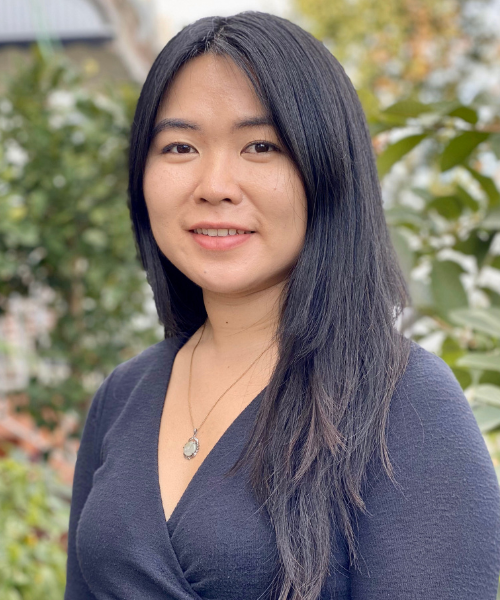In many Asian cultures, mental health is a topic often cloaked in silence. Whether due to cultural expectations, generational gaps, or the weight of societal judgment, seeking help for mental health struggles can feel like an impossible task. However, Asian therapists are playing a vital role in changing this narrative.
In this blog, we’ll explore common questions about how Asian therapists are helping to dismantle the stigma around mental health while providing valuable resources for those seeking support.
Let’s dive in!
Why is Mental Health a Stigma in Many Asian Communities?
The stigma surrounding mental health in Asian communities stems from deeply ingrained cultural values.
Concepts like “saving face” and prioritizing family honor often discourage individuals from discussing personal struggles openly.
Mental health issues may be viewed as a sign of weakness or a source of shame that reflects poorly on the entire family.
Asian therapists understand these cultural dynamics and work to normalize mental health care by creating a safe and judgment-free space for their clients.
They help individuals navigate these complex cultural expectations while emphasizing that seeking help is a sign of strength, not failure.
What Are the Benefits of Seeking an Asian Therapist?
Finding a therapist who understands your cultural background can significantly enhance the therapeutic experience.
Here are some key benefits of working with an Asian therapist:
- Cultural Relevance: Therapy sessions are tailored to reflect cultural nuances, making them more relatable and effective.
- Comfort and Trust: Clients often feel more comfortable discussing personal matters with someone who shares a similar cultural framework.
- Language Support: Asian therapists who are bilingual can communicate effectively with clients or their family members who prefer their native language.
- Addressing Shame and Guilt: Therapists help clients reframe feelings of shame or guilt within a cultural context, promoting self-compassion.
Looking For An Asian Therapist in Philadelphia?

Meet Amy Huang
Amy Huang is an Asian therapist in Philadelphia, Pennsylvania who has the capacity to provide therapy in both Cantonese Chinese and English. As a child of two Chinese immigrants, she has firsthand experience navigating the complexities of cultural identity, addressing intergenerational expectations, and learning to embrace her roots. This personal journey fuels her dedication to serving first-generation American and BIPOC communities, where she strives to break down the stigmas that often surround mental health.
With a strong background in working with teens and adults, Amy helps individuals navigate a range of challenges, including anxiety, depression, relationship difficulties, identity exploration, and life transitions. She emphasizes the importance of developing strategies and tools that align with one’s values and culture. Her goal is to support everyone on their journey towards fostering resilience, well-being, and personal growth.
What Makes Asian Therapists Unique?
Asian therapists bring a unique perspective to mental health care.
They often share cultural backgrounds and lived experiences with their clients, which fosters trust and understanding. This connection can be particularly beneficial when discussing issues like generational trauma, acculturation stress, or navigating bicultural identities.
Key characteristics of Asian therapists include:
- Cultural Sensitivity: Understanding how cultural values influence behavior and thought patterns.
- Language Accessibility: Providing therapy in native languages or dialects, which can be crucial for effective communication.
- Shared Lived Experience: Relating to clients’ experiences with racism, immigration, or cultural identity struggles.
By addressing these unique needs, Asian therapists create an environment where clients feel seen, heard, and understood.
How Do Asian Therapists Address Generational Differences?
Generational differences often play a significant role in mental health struggles within Asian families.
For instance, first-generation immigrant parents may prioritize survival and hard work, while their children seek self-expression and mental well-being.
These differences can lead to misunderstandings and conflict.
Asian therapists help bridge this gap by:
- Facilitating Communication: Encouraging open dialogue between generations.
- Validating Both Perspectives: Helping each generation understand the other’s values and experiences.
- Providing Tools for Conflict Resolution: Teaching healthy communication strategies and boundary-setting techniques.
By addressing generational differences, Asian therapists empower families to build stronger, more empathetic relationships.
How Can Asian Therapists Help Navigate Cultural Identity Struggles?
Many individuals in Asian communities grapple with cultural identity struggles, especially those living in the diaspora.
Balancing two cultures—one rooted in tradition and the other shaped by the Western world—can be challenging.
Asian therapists specialize in helping clients navigate these identity conflicts by:
- Exploring Bicultural Identity: Helping clients embrace their dual identities without feeling torn between them.
- Addressing Racism and Microaggressions: Providing coping mechanisms for dealing with discrimination.
- Promoting Self-Acceptance: Encouraging clients to honor their cultural heritage while defining their individuality.
Through these approaches, Asian therapists help individuals build confidence and resilience.
How Are Asian Therapists Reducing Barriers to Mental Health Care?
Despite the growing awareness of mental health, barriers like cost, accessibility, and stigma still prevent many Asians from seeking therapy. Asian therapists are actively working to reduce these barriers by:
- Community Outreach: Hosting workshops, webinars, and support groups to normalize conversations about mental health.
- Online Therapy Options: Offering virtual sessions to make therapy more accessible for busy individuals or those in remote areas.
- Sliding Scale Fees: Providing affordable therapy options for those facing financial challenges.
By addressing these obstacles, Asian therapists ensure that mental health care is within reach for everyone in their communities.
Where Can You Find Asian Therapists?
If you’re searching for an Asian therapist, several resources can help:
- Therapy Directories: Websites like Psychology Today and Inclusive Therapists allow you to filter by ethnicity and cultural background.
- Community Organizations: Many Asian community centers and nonprofits maintain lists of culturally competent therapists.
- Word of Mouth: Personal recommendations from friends or family can lead to trusted therapists.
- Melanted Women’s Health: Contact us to schedule an appointment with our Asian therapist, Amy Huang, who is bilingual in English and Cantonese Chinese.
Remember, finding the right therapist may take time, but the effort is worth it for your mental well-being.
How Can Therapy Normalize Mental Health in Asian Communities?
Therapy has the power to transform how mental health is perceived in Asian communities. When individuals openly share their experiences with therapy, it creates a ripple effect that reduces stigma and encourages others to seek help.
Asian therapists play a critical role in this transformation by:
- Leading by Example: Sharing their own journeys and normalizing mental health conversations.
- Educating Communities: Dispelling myths about therapy and mental health.
- Advocating for Change: Working with schools, workplaces, and religious institutions to promote mental health awareness.
As more people embrace therapy, the stigma surrounding mental health in Asian communities continues to diminish.
What Should You Expect from Your First Session with an Asian Therapist?
Your first therapy session can feel both exciting and nerve-wracking. Here’s what you can expect:
- Building Rapport: Your therapist will take time to get to know you and understand your concerns.
- Setting Goals: Together, you’ll establish what you hope to achieve through therapy.
- Cultural Considerations: Your therapist may ask about your cultural background to better understand your experiences.
- Safe Space: Expect a judgment-free environment where you can express yourself openly.
The first session is just the beginning of your journey toward healing and growth.
Final Thoughts: The Impact of Asian Therapists
Asian therapists are not just mental health professionals; they are cultural bridges, community advocates, and changemakers.
If you or someone you know is struggling, consider reaching out to an Asian therapist.
Their culturally sensitive care can make a world of difference in your mental health journey.
Remember, seeking help is not a sign of weakness but a step toward strength and empowerment.
By embracing therapy, we can foster healthier individuals, stronger families, and more resilient communities.
Let’s continue to celebrate and support the incredible work of Asian therapists in breaking the stigma around mental health.


